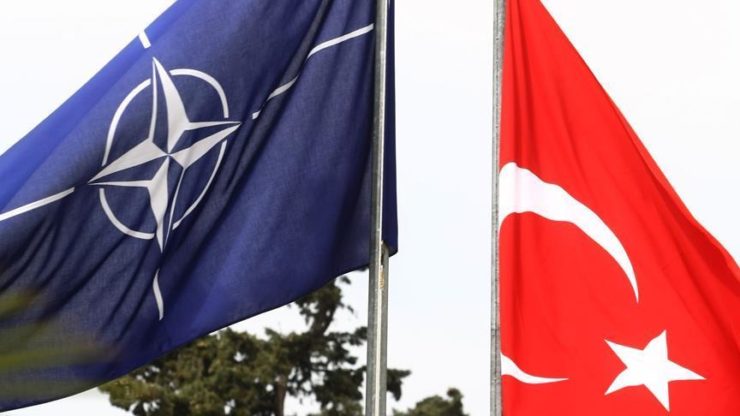
Most western political analysts believed that Erdoğan’s opposition to Sweden’s NATO membership was only a ploy to garner political and electoral support at home to ensure his victory in the May 2023 presidential elections. However, even after winning the elections, the Erdoğan administration’s position on Sweden’s membership has not changed. The latest incident of the Quran burning in Sweden has further exacerbated the situation. More importantly, the group of protestors staged this Islamophobic incident in front of the Turkish embassy. Ironically, the Swedish government allowed this anti-Islam and anti-Turkey incident to happen, even though Stockholm would have known how this incident could hurt its NATO ambitions. As could be expected, Turkey has sent a warning to Sweden. The incident only adds insult to injury insofar as it only adds to the existing list of contentions – especially, the question of extraditing Kurdish leaders based in Sweden – between Turkey and Sweden. While Sweden initially agreed to Turkey’s demands for extradition, the Swedish Supreme Court blocked extradition in December 2022, thus complicating the situation further.
While Sweden’s role in these Quran-burning incidents can hardly be denied because Swedish authorities, knowing well the consequences, themselves allow these demonstrations to take place. Swedish authorities have been very keen to cover Islamophobia targeted at Turkey, used as a tool of provocation, with Russophobia. As the Swedish foreign minister remarked after anti-Turkey protests in Stockholm, “This act plays directly into the hands of Russia and weakens our country, and it happened during the most serious security situation since the Second World War”. Turkey, however, denied accepting this explanation as an accurate reflection of Swedish politics.
While it seems that both Sweden and Turkey are squabbling over petty issues vis-à-vis the bigger issue of NATO’s expansion, Turkey’s opposition has a strong rationale. It wants to gain maximum concessions from the West – the EU and the US – before it can lift its veto on Sweden. Ankara wants continued access to the F-35 programme. But, more importantly, Turkey can block Sweden’s membership and expect concessions because of its indispensability for NATO.
Why is Turkey so indispensable? Surely, Turkey’s geographical location makes it indispensable. At the same time, NATO, since the beginning of the Russia-Ukraine military conflict, is undergoing some significant changes. For the first time, NATO is fighting a major conflict. Since its formation after the Second World War, NATO has fought many small wars (e.g. in Afghanistan and Iraq) but did not face a formidable rival until last year. This has forced NATO into a self-evaluation mode. On the one hand, it is very actively seeking to expand its global outreach by opening an office in Japan, and on the other hand, it is also seeking to develop new “secret” plans to counter a Russia.
As reports in the Western mainstream media show, on June 16, NATO failed to approve its “first defence plans” since the Cold War. As the report shows, the reason for the failure was Turkey’s objections. The new plans include possible upgrades to the NATO countries’ forces and logistics, with new plans also depending on the availability of large military forces. With Turkey being one of the largest military forces in NATO, it becomes crucial for the success of NATO’s shift towards preparing for a large-scale war. Therefore, Turkey today stands in a position where it can afford a stubborn stance vis-à-vis Sweden and expect major concessions from the US and the EU.
One of the concessions that Turkey has recently extracted from the US concerns the sale of F-16 fighter jets. After Erdoğan won the elections in May, Joe Biden spoke with him and specifically discussed two issues: Sweden’s NATO accession and Turkey’s ‘request’ for overhauling and expanding its fleet of F-16 jets. The transactional nature of ongoing negotiations reflects, as Voice of America said in one of its reports, a major shift in the US away from previous rejections of “quid pro quo between the transatlantic military alliance’s expansion and a weapons sale”.
Although the White House had tried to create the impression that the sale of F-16s is not part of the ongoing bargain, it is more than a mere coincidence that only two weeks after Turkey ratified Finland’s NATO accession in April 2023, the US also approved a US$ 259 million sale of avionics software upgrades for Turkey’s current fleet of F-16 jets.
What does this purely transactional nature of ties between Turkey and NATO tell us about NATO itself? To begin with, there is no denying that the transactional nature of military ties itself means that the alliance is not ideologically coherent. Not all NATO members see Russia as a threat, and some are willing to put their national interests ahead of the alliance’s interests. As it stands, Turkey isn’t the only country blocking Sweden’s accession. Hungary, too, is playing tough, as it has once again delayed ratifying Sweden’s NATO accession.
This internal divide exists about NATO’s intercontinental expansion as well. For instance, France opposes opening up NATO offices in Japan. NATO remains divided on the question of Ukraine’s NATO accession as well. For instance, German Foreign Minister Annalena Baerbock said that “NATO’s open door policy remains in place, but at the same time, it is clear that we cannot talk about accepting new members [who are] in the midst of a war”.
Coming back to Turkey, Ankara, as a NATO member, is quite aware of the internal cracks. In its calculation, NATO is vulnerable, and it must capitalize on this weakness to the maximum advantage. In this context, it is an oversimplification – and an exaggeration – to associate Turkey’s opposition to Sweden’s NATO accession with Russian influences; it has more to do with Turkey’s own strategic, self-interest-based calculations.
Salman Rafi Sheikh, research-analyst of International Relations and Pakistan’s foreign and domestic affairs, exclusively for the online magazine “New Eastern Outlook”.
